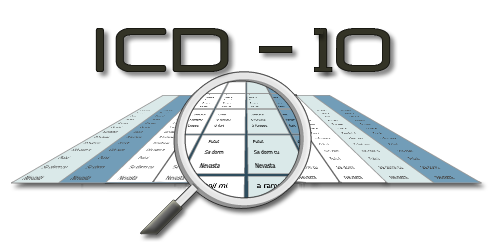View ICD 9cm to ICD 10 Hypertension (HTN) codes conversion for Essential, Pulmonary, Accelerated, Portal, Malignant, Renovascular, ocular and Unspecified hypertension diseases.
The center for disease Control and prevention puts the number of Americans who suffer from hypertension at 67 million translating to 31% of all adults. It is estimated that more women than men suffer from Hypertensive condition with a high prevalence in people above the ages of 65.
One is considered to suffer from hypertension if his systolic pressure stands at more than 140mmHG while the diastolic pressure clocks a high of 90mmHg and more. Hypertension causes the heart to work harder to pump blood to the entire body which most of the time result in left sided heart failure.
There are two main types of hypertension, primary hypertension which has been known to grow gradually with time. The other one is known as secondary hypertension. Both types of hypertension are known to considerably hurt the arteries acting as a major cause for strokes, heart attacks, kidney failure and blindness.
Hypertensive heart diseases with heart failure will be represented by the ICD-10 code I11.0; this will also be applicable for hypertensive heart failure. You can use additional code 150 to identify heart failure. ICD-10-CM I11.0 forms part of related Groups (MS-DRG v30.0)
ICD Code I12.0 in ICD-10 codes will be used to indicate hypertensive chronic kidney disease with stage 5 chronic kidney disease or end stage for renal disease. I12.9 on its part will represent Hypertensive chronic kidney disease with stage 1 through to stage 4.
With ICD-10-CM hypertension codes, a physician will be able to support diagnosis of hypertension with other data such as Auscultation (listening to sound with a stethoscope). Other codes that will be used for the different hypertension conditions include:
The center for disease Control and prevention puts the number of Americans who suffer from hypertension at 67 million translating to 31% of all adults. It is estimated that more women than men suffer from Hypertensive condition with a high prevalence in people above the ages of 65.
One is considered to suffer from hypertension if his systolic pressure stands at more than 140mmHG while the diastolic pressure clocks a high of 90mmHg and more. Hypertension causes the heart to work harder to pump blood to the entire body which most of the time result in left sided heart failure.
There are two main types of hypertension, primary hypertension which has been known to grow gradually with time. The other one is known as secondary hypertension. Both types of hypertension are known to considerably hurt the arteries acting as a major cause for strokes, heart attacks, kidney failure and blindness.
Hypertension ICD 10 CM Codes
Changes are set to rock the medical coding industry with ICD-9-CM codes set to be replaced by the newly drafted ICD-10-cm codes as of October 1 2014. Here we are going to present you with an overview on crosswalk of Hypertension ICD 9 to ICD 10 codes:- ICD I110 Essential Hypertension/ Primary Hypertension
- ICD I11 Hypertensive Heart Disease
- ICD I12 Hypertensive Chronic Kidney Disease
- ICD I13 Hypertensive Heart and Chronic Kidney Disease
- ICD I115 Secondary Hypertension
Hypertensive heart diseases with heart failure will be represented by the ICD-10 code I11.0; this will also be applicable for hypertensive heart failure. You can use additional code 150 to identify heart failure. ICD-10-CM I11.0 forms part of related Groups (MS-DRG v30.0)
- 222 Cardiac defib implant with cardiac cath with ami/hf/shock with mcc
- 223 Cardiac defib implant with cardiac cath with ami/hf/shock without mcc
- 224 Cardiac defib implant with cardiac cath without ami/hf/shock with mcc
- 225 Cardiac defib implant with cardiac cath without ami/hf/shock without mcc
- 226 Cardiac defibrillator implant without cardiac cath with mcc
- 227 Cardiac defibrillator implant without cardiac cath without mcc
- 292 Heart failure & shock with cc
- 293 Heart failure & shock without cc/mcc
- 793 Full term neonate with major problems
- 291 Heart failure & shock with mcc
ICD Code I12.0 in ICD-10 codes will be used to indicate hypertensive chronic kidney disease with stage 5 chronic kidney disease or end stage for renal disease. I12.9 on its part will represent Hypertensive chronic kidney disease with stage 1 through to stage 4.
With ICD-10-CM hypertension codes, a physician will be able to support diagnosis of hypertension with other data such as Auscultation (listening to sound with a stethoscope). Other codes that will be used for the different hypertension conditions include:
- ICD I15.0 Renovascular Hypertension
- ICD I15.1 Secondary Hypertension to Renal Disease
- ICD I15.2 Secondary Hypertension to Endocrine Disorders
- ICD I15.8 Other Secondary Hypertension
- ICD I15.9 Secondary Hypertension Unspecified
- ICD I15.9 Secondary Hypertension Unspecified
- ICD I27.0 Primary Pulmonary Hypertension
- ICD K76.6 Portal Hypertension
- ICD H40.059 Ocular hypertension, unspecified eye


Post a Comment
Webmaster reserves the rights to edit/remove comments that is found irrelevant, offensive, contain profanity, serves as spam or attempts to harbor irrelevant links. Please read our Comments Policy for details.